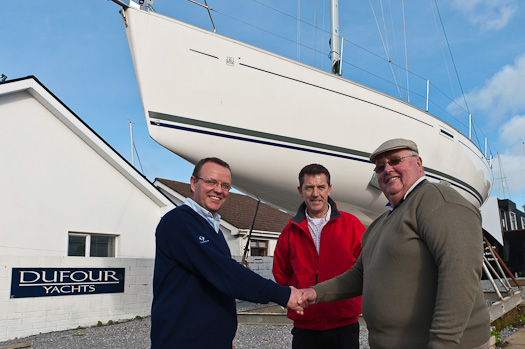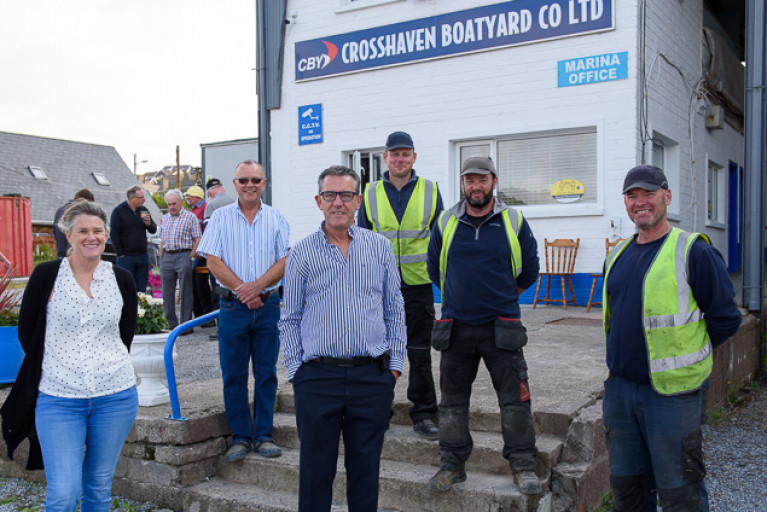Displaying items by tag: Matt Foley
Matt Foley Retires from Crosshaven Boatyard After Forty Years Service
After forty years of service, popular County Cork boatyard manager Matt Foley has retired from Crosshaven Boatyard.
Matt started work in the Cork Harbour yard on the 20th of August 1980. His first role was as a storeman at a very busy time with famous yachts such as the Frers 50, 'Moonduster' and 'Golden Apple' both in build at the yard. Also back then – which many consider the yard's heyday – 40-foot trawlers were also built on-site, presenting an often hectic but happy scene for Matt and the Crosshaven team.
Over the years, Matt, who continues to play an active role as Treasurer in the Crosshaven RNLI Lifeboat since the stationed opened in 2000, was often multi-tasking and took on varied roles as the boatyard changed focus, including operating the Travel Hoist hauling and launching boats, all done in his usual affable and professional manner.
In March 2005, Matt was invited to take on the role of Boatyard Manager and Company Secretary which he did so reluctantly at first as it was his first managerial role. However, like everything else in the yard, Matt took to the new position quickly and soon earned the respect of both customers and staff alike.
In an overall context, Matt is credited with helping to turn the Boatyard into a profitable business. He also played a key role at the yard in supporting Cork Week Regatta at its height and more recently rebuilding the Boatyard's 120-berth Marina in 2014.
Yacht broker Donal McClement who worked in association with the yard describes Matt as "firm but fair and always a pleasure to work with". Matt's colleague Hugh Mockler, the yard's current broker, has been one of the first to wish Matt well into the future. "Everyone in Crosshaven Boatyard says it was a privilege to work with Matt and we wish him and his wife Jackie a very happy retirement".
Irish Marine Federation Chairman Paal Janson has also wished Matt "a happy retirement" and extends the "appreciation and good wishes of the Irish marine industry for his long service".
Hugh Mockler Joins Crosshaven Boatyard
Crosshaven Boatyard Company Ltd has announced that Hugh Mockler, (formerly of HM Yachts Ltd), is to join long established yacht broker, Donal McClement in the Boatyard's new boat and brokerage sales division.
Matt Foley, General Manager of Crosshaven Boatyard, told Afloat, 'Donal and Hugh are two of the best known and most successful Yacht Brokers in Ireland. Over the past number of years and their combined knowledge of a very difficult market will ensure that the buyers and sellers get a top class service'. Hugh and Donal will be able to give buyers and sellers the best possible advice.'
Crosshaven Boatyard has been providing marine services for over 60 years.
The boatyard also specialises in all aspects of the repair and maintenance of modern pleasure boats. Many well-known boats such as Gypsy Moth V, the Saint Brendan, Longbow II and a series of Moondusters were completed in the1980s.
It was the first commercial marina, with a marine travel hoist, in Ireland in 1979. The yard is the Irish distributor for Dufour Yachts of France, and Grand Soleil, of Italy.

Hugh Mockler (left) is greeted by General Manager Matt Foley (centre) and yacht broker Donal McClement. Photo: Bob Bateman

























































